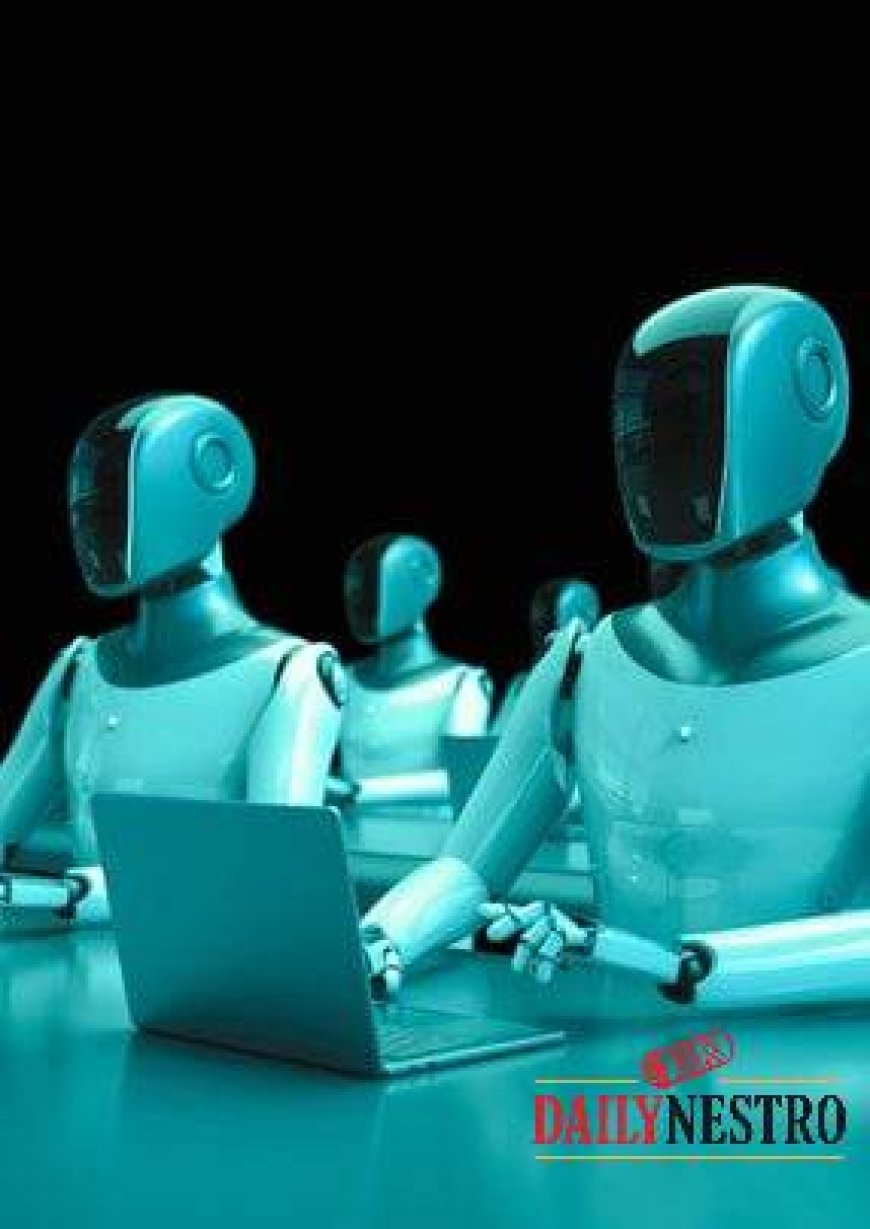The Agentic AI Boom: U.S. Enterprises Race Ahead, But Are They Outpacing Demand?
U.S. enterprises are rushing to deploy agentic AI, systems that act independently of humans. But as billions flood the market, analysts warn of oversaturation and a looming correction.

Artificial intelligence has always promised to make our lives easier. But in 2025, it’s doing more than that; it’s making decisions, assigning tasks, and even negotiating outcomes on behalf of companies.
Welcome to the era of agentic AI, systems that don’t just assist but act.
American enterprises, from Wall Street to Silicon Valley, are engaged in a fierce competition to implement these autonomous digital agents. However, as billions pour into AI-driven operations, some analysts caution that the industry may be moving too quickly.
What Exactly Is Agentic AI?
Agentic AI is the next leap from generative models like ChatGPT or Claude. Instead of producing answers, these systems autonomously execute multi-step workflows, scheduling meetings, writing code, conducting market research, or even running procurement chains.
Think of it as an AI with initiative.
Companies like Salesforce, Microsoft, and Amazon Web Services are integrating these intelligent agents into their ecosystems. Salesforce’s “Einstein 1 Agent” and Microsoft’s “Copilot Studio” now allow enterprise clients to automate entire business processes with minimal human supervision.
According to McKinsey’s 2025 Technology Trends Outlook, enterprise interest in autonomous systems has surged 170% year-on-year, with over 60% of Fortune 500 firms piloting some form of agentic automation.
“We’ve reached a tipping point; the AI doesn’t just answer; it acts,” says Dr. Lisa Chang, Director of AI Strategy at McKinsey Digital. “That changes how businesses think about efficiency, accountability, and even risk.”
But where there’s hype, there’s hazard.
According to industry observers, there may be too many agentic AI tools available on the market right now, many of which are not secure or in line with real-world demand. According to a recent report by IT Pro UK, since early 2024, hundreds of startups have introduced "AI agents," ranging from automated marketing assistants to HR bots, but less than 15% have a clear product-market fit.
“We’re seeing déjà vu from the dot-com bubble,” warns Ben Zhao, a data-ethics researcher at the University of Chicago. “Investors are funding AI that automates tasks nobody asked to automate.”
The venture capital flow backs his concern. Crunchbase data shows nearly $47 billion in new AI-agent startups in 2025 alone, a 60% increase from last year, yet profitability remains elusive for most.
Beyond America: The Global Ripple
This trend isn’t just U.S.-centric.
In Europe and Asia, companies are also jumping aboard, albeit with more regulatory caution.
The European Union’s AI Act, which came into partial effect in June 2025, mandates transparency for autonomous decision-making systems. This means businesses deploying agentic AI must disclose when algorithms are executing key actions, a rule many U.S. companies would find restrictive.
Meanwhile, China and Singapore are experimenting with “dual-layer” AI governance, allowing innovation sandboxes where startups can test automation agents under supervision. Analysts believe this model could strike the best balance between speed and accountability.
For Africa, particularly Nigeria, this trend holds intriguing potential.
Local fintech firms and logistics companies could leverage agentic AI to handle repetitive verification or compliance tasks, freeing human teams for creative problem-solving. Yet, without local AI-safety frameworks, adoption could introduce security vulnerabilities or job displacement risks.

Opportunity Meets Oversaturation
The promise of agentic AI is enormous: faster operations, reduced overhead, and smarter analytics.
But success depends on alignment between capability and context.
Analysts at Gartner estimate that by 2027, 40% of enterprise workflows will include autonomous agents, but only 20% will achieve positive ROI unless integrated with existing human processes.
In short, AI agents are brilliant at execution but terrible at improvisation. They thrive on structure, not ambiguity.
And in business, ambiguity is everywhere.
This is why companies like IBM and Oracle are promoting “hybrid AI” systems, which keep humans in the loop. It’s not just about building faster tools; it’s about building trustworthy ones.
Dailynestro Insight
The race toward autonomy is inevitable, but direction matters more than speed.
Agentic AI isn’t the future of technology; it’s the next mirror of human ambition. Companies that strike a balance between empathy and automation will succeed. People who chase hype without a plan risk being outsmarted by their own inventions. As people around the world marvel at thinking machines, Dailynestro will continue to ask: Who is thinking for the machines?
Sources:







